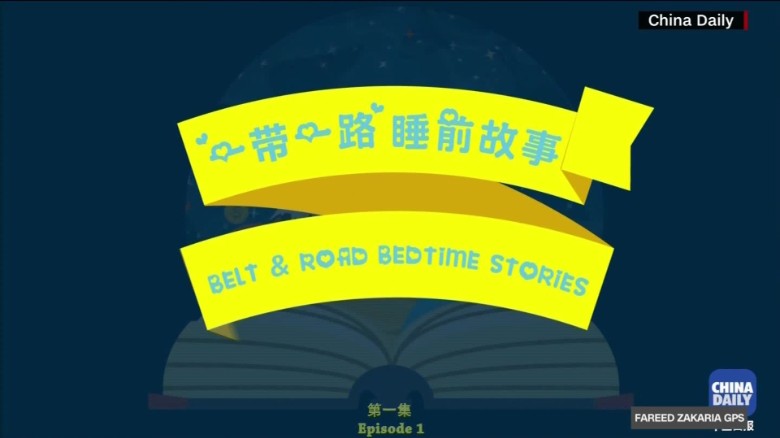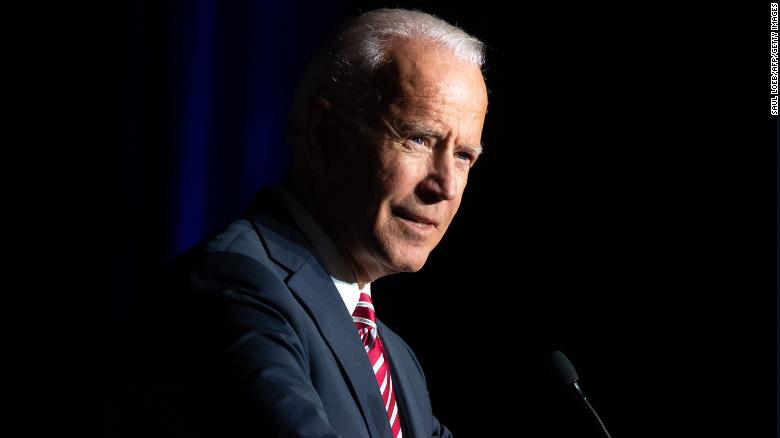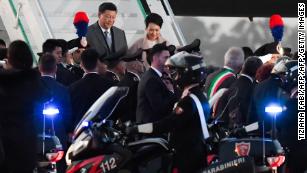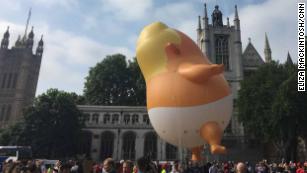China is watching Western democracy eat itself
Over the next few months, the world's current and previous superpowers are set to undergo enormous self-harm.
The biggest victim could be democracy itself, and the biggest losers the approximately 4 billion people who live in its imperfect embrace.
As London and Washington convulse, China belches along, gobbling up cultures in a way that should alarm us all.
This week, China's future global dominance was on full display as foreign leaders headed to Beijing in the hope of securing lucrative projects as part of China's Belt and Road Initiative.
It is the flagship policy of Chinese President Xi Jinping, and it seeks to bring the world into China's economic embrace by building infrastructure on a mass scale, ultimately improving transport, ties with and reliance on China across the world.
Italy rolls out red carpet for China's President Xi Jinping
The promise of increased trade with what will soon be the world's largest economy -- not to mention the immediate prospect of the aforementioned contracts -- are too tempting to ignore.
Xi is doing what all aspiring empires do, threading the world in a web of dependency, slowly creating dominion in other powers' backyards.
His ambitious show in Beijing seems perfectly timed to exploit the self-inflicted political crises the United States and the UK are imposing on themselves.
In the United States, a presidential election campaign pitching President Donald Trump against a crowd of Democratic foes will be firing up in the coming weeks, particularly now that heavyweight contender Joe Biden has officially thrown his hat in the ring.
Meanwhile, the UK will continue a very public evisceration of centuries of democratic process and precedent by executing an excruciatingly painful exit from the European Union. Amusingly, the next deadline falls on Halloween.
These two nations may yet reverse their direction and show that the current political spasms are nothing more than a spike in democracy's growing pains.
But blind faith in the democratic system we've grown up with blinkers us to the realities of how China, the world's superpower-in-waiting, gets stronger through democracy's misadventures.
Lesson here: Your overlords in the new world order won't give a fig for your democratic values or your grandchildren's rights and desires.

Last Look: Bedtimes stories from China's government
China is creating a society without public debate in which unelected officials use artificial intelligence to control everything from promotion at work, to travel, to housing, to welfare.
It holds its population in a grip that no one living in a democracy could ever countenance. Yet our mostly tolerant society, built upon trust in our leaders, seems focused on petty personal attacks that risk throwing out that most valuable commodity in any democracy: trust.
A lie gets halfway round the world before the truth puts its shoes on, so the adage goes. A Trump personal put-down has double the speed and power, often knocking out opponents before they're even ready for a fight. "Crooked Hillary," "Little Marco" -- these are just two of the stinging epithets that have instantly ensnared an opponent.
Who but Trump could really own the argument that Sen. John McCain was not a war hero?
China's Xi and his autocratic Russian ally, Vladimir Putin, must be lapping up this election cycle as Trump lathers faux sympathy on Biden, labeling him "Poor" Joe Biden over allegations of inappropriate conduct with women.
Trump's opening catch-all salvo in this election cycle is to label Democrats "socialists," hoping Republicans can unhinge themselves from democracy's roots and act on his slur.
The President has defined his opponents before one has arisen from the gathering mass of Democratic challengers.
The next year will be ugly for many at the center of the coming political storms. But its effect on democracy's global reach could be far more damaging.

Joe Biden announces 2020 presidential run
The electorates in the UK and the United States will emerge bitter, divided and likely thoroughly underwhelmed at what has become of social and political discourse in their countries, while leaders and electorates in emerging and wannabe democracies will be questioning their own judgment.
In the UK, Brexit is already shifting voters to the extremes.
Debate is shrill, opinions entrenched, democracy weakened. Some believe politicians have failed to deliver on the will of the people; others are flabbergasted that three years since the referendum, no one represents their values and views.
Brexit is turning the Conservative Party toward the right. Hard-line Brexiters are winning the internal party argument, even if they are failing to win the argument with the public at large. Meanwhile, the opposition Labour Party drifts closer to a softer Brexit, and possibly a second referendum.
Labour leader Jeremy Corbyn has placed jobs at the center of his Brexit message. It could turn out to be a canny move, especially among older Labour voters in poorer parts of the country who voted to leave the EU in 2016.
So Corbyn turns left while the Conservatives turn right.
The result? The UK's politics are being pulled to extreme poles, leaving a vast middle ground where people such as former Prime Ministers Tony Blair (Labour) and John Major (Conservative) once stood.
The erosion of the middle ground and the crash in trust that it engenders is not new. But this year it could be edging toward a tipping point.
A visit from Donald Trump is the last thing the UK needs right now
It's not just in the United States and the UK. In France, "yellow vest" protesters are testing President Emmanuel Macron's political abilities.
Italy, like many other European nations, is riven by rising nationalism. Only recently, Finland, a historic fault line between democracy and autocracy, narrowly voted in a liberal party that edged out nationalists.
All the same, it will struggle to form a coalition with the other right-wing party.
Europe is not having an easy time. Newer members of the EU, like increasingly autocratic Hungary, challenge the bloc's better social instincts. They seem to be looking for a different version of democracy, one that in reality can quickly become no democracy at all.
The EU always defied a single idea and managed to muddle through with a string of fudges. Indeed, fudges and compromise are what define democracy -- the trust in the other to find a mutually agreeable way forward.
But in the event those time-sweetened bonds ooze away, what will be left is an unpalatable aftertaste of division and weakness, precisely what the world's superpower-in-waiting wants.
It is worth considering that as we embark on democracy's greatest challenge to date, demonstrating this is not some transient experiment but a cherished, albeit imperfect, life choice for more than half the planet.
News Courtesy: www.newagebd.net













